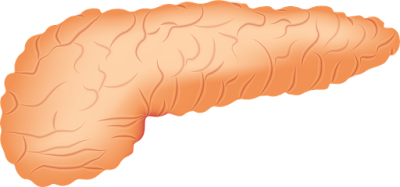Foods you can eat after teeth whitening
What can be eaten safely after teeth whitening?
Teeth whitening by the dentist is a very effective procedure. Teeth usually look very natural and dazzling at the same time. We want to keep this effect for as long as possible, so we follow all the recommendations. Among them a great unknown is often a white diet.
Why should I follow a white diet after teeth whitening?
All because of a side effect of this procedure. After teeth whitening, they lose a large part of their water. This makes it very easy to absorb fluids, which often contain artificial or natural dyes. Your dentist can recommend a white diet for up to 14 days. It must be used for two days after the treatment, but it is best to use it for at least 7 days.
When using a white diet, all colouring ingredients should be avoided. Where to look for them? Especially in fruit and vegetables with intensive colouring: beetroot, red cabbage, peppers, blueberries, strawberries, broccoli, spinach, etc., you should avoid using any colouring ingredients. You cannot eat red meat, egg yolks, cheese, chocolate, tomato puree.
Soups, baking or vinaigrette sauces, as well as some spices, including curry, curcuma, chilli or broth cube, should also be removed from the menu for this time. During this time it is also forbidden to consume coffee, tea and alcoholic beverages, especially red wine. In order to preserve the effect of snow-white teeth, smoking, including electronic cigarettes, should also be avoided!
If you are afraid that teeth whitening means a few days of hunger strike - nothing more wrong!
As it turns out, a white diet allows for quite a lot of products, which can be mixed with each other freely, receiving really delicious dishes. The products recommended by dentists include: dairy products (white cheese, cream, quark, natural yoghurt, milk, butter), fish, seafood, bananas, rice, white pasta, lamb groats, as well as many vegetables (white beans, potatoes, garlic, onion, white cabbage).
It is also possible to consume parts of vegetables after peeling, e.g. cucumber or eggplant. An exemplary breakfast can therefore be oatmeal with banana. In turn, a perfect dinner will be white rice with fried peeled eggplant and courgette, served with white cabbage salad. There are many possibilities in this case, it is enough to be inspired by some recipes in Internet.
As it turns out, a white diet is not as restrictive as it might seem at first. Although it is a challenge, it is very important to maintain satisfactory results after professional teeth whitening.
Healthy teeth and confidence
It is no secret that a white smile and straight teeth are the ticket to greater self-confidence, but also to a better first impression. It is a psychologically proven fact that when we look good, we lift our head higher, tend to hunch over less and are bolder and more willing to be in company. By building this image of ourselves in other people's eyes, we instantly open many doors previously closed to us.
But it is not just about how others see us. What is important is that we ourselves feel more at ease and attractive in our own bodies. And from there it is not far to a significant improvement in mood and attitude on a daily basis.
Healthy teeth = healthy body?
Many people do not know that tooth decay, or inflammation in the oral cavity, can have a huge impact on the entire body. Doctors are now linking neglect of our teeth to many diseases that we would not at first mention as being caused by tooth decay. As it turns out, it can affect problems in many organs, but also contribute to eating or sleeping disorders (not least because of pain).
Taking care of our dental health should not only be a priority, as has become established in recent decades, for pregnant women. It is one of the fundamental aspects of everyday health care, which translates into the health of our body and our well-being.
Untreated caries can lead to inflammation of the structures surrounding the teeth, the bones, the maxillary sinuses, the eyes and many other organs, as well as exacerbating associated diseases. The extent to which bacteria can be assimilated into the blood via our oral cavity is enormous and dangerous in its consequences.
Psychologically, it leads to alienation, withdrawal and, in extreme cases, depression, and this is spoken about far too rarely.
How do you look after your teeth?
It is never too early or too late to take care of a beautiful and healthy smile. Daily hygiene is, of course, essential, but few of us know that this is not everything.
Remember to visit your dentist at least once a year for a professional tartar cleaning and sandblasting. It is also a good idea to have your teeth examined regularly so that we can react in time if decay appears. In addition to such basic treatments, I also recommend others that will help us feel more confident with our smile.



Comments
Post a Comment